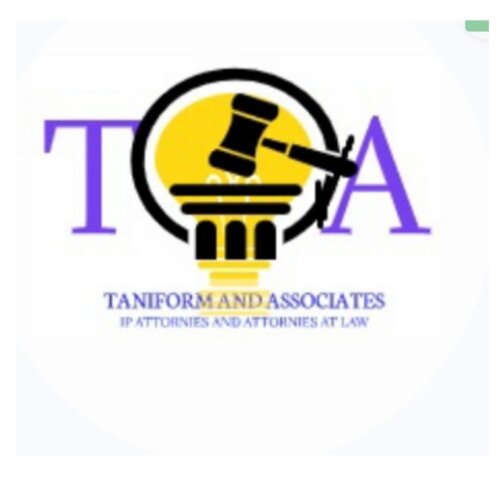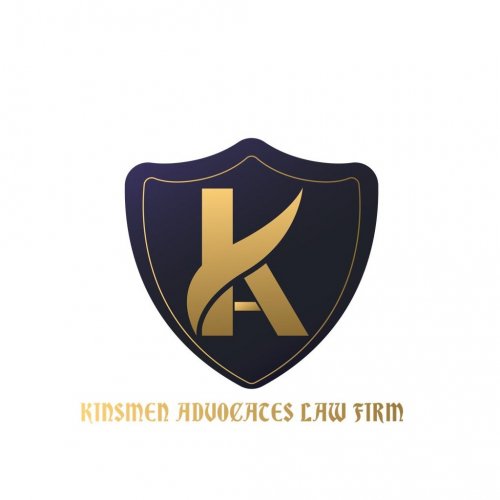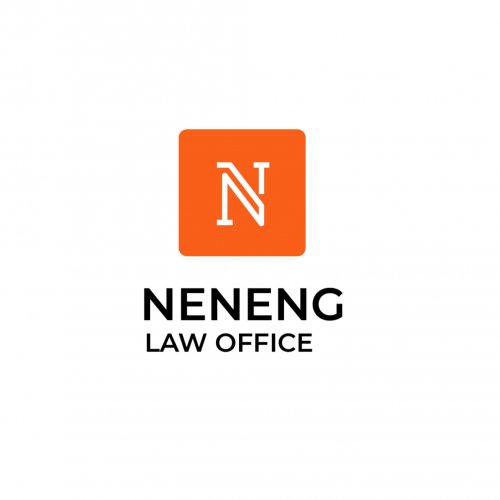Best Employment Benefits & Executive Compensation Lawyers in Cameroon
Share your needs with us, get contacted by law firms.
Free. Takes 2 min.
Or refine your search by selecting a city:
List of the best lawyers in Cameroon
Legal guides written by CHI & Partners Law Firm:
- Ship Registration in Cameroon

Taniform and Associates IP Attorneys and Attorneys at Law
15 minutes Free ConsultationAbout Employment Benefits & Executive Compensation Law in Cameroon
Employment Benefits & Executive Compensation in Cameroon are governed by various legal frameworks that aim to ensure fair labor practices and equitable compensation for employees, including executives. The country's labor laws are primarily enshrined in the Labor Code, which outlines the basic rights and obligations of employers and employees. Employment benefits might include health insurance, pensions, paid leave, and other work-related benefits, while executive compensation often involves complex arrangements comprising salary, bonuses, equity incentives, and retirement packages. Understanding these legal nuances helps both employers and employees establish clear expectations and avoid legal disputes.
Why You May Need a Lawyer
There are several situations where legal advice in Employment Benefits & Executive Compensation may be necessary in Cameroon:
- Negotiating employment contracts, particularly for executive roles, where compensation packages can be complex.
- Ensuring compliance with the local Labor Code and other relevant regulations to prevent legal issues.
- Resolving disputes over benefits coverage, such as health insurance, pension rights, or bonus entitlements.
- Addressing wrongful termination cases or disputes over severance packages.
- Creating competitive and compliant compensation strategies for businesses to attract and retain talent.
- Handling issues related to stock options, performance incentives, and other executive compensation matters.
Local Laws Overview
Key aspects of Cameroonian law relevant to Employment Benefits & Executive Compensation include:
- The Labor Code: This is the primary legislation governing employment relationships, detailing employee rights, employer obligations, contract requirements, and working conditions.
- Social Security Regulations: These govern the contributions to and distributions from national social insurance schemes, covering healthcare, pensions, and unemployment.
- Tax Code: Influence on the taxation of various elements of compensation, including benefits and bonuses, affecting both employer strategies and employee take-home pay.
- Health and Safety Standards: Employers must adhere to specific standards to provide a safe working environment, crucial in managing employee benefits related to health care and injury compensation.
Frequently Asked Questions
What are the minimum employee benefits required by law in Cameroon?
The Labor Code mandates basic benefits, including a minimum wage, paid leave (annual, maternity, sickness), and contributions to the national pension scheme.
What does an executive compensation package typically include?
An executive compensation package may include a base salary, performance bonuses, stock options, health and retirement benefits, and other non-cash incentives.
How are employment benefits taxed in Cameroon?
Most employment benefits in Cameroon are subject to taxation under the national Tax Code, with specific rules applying to different types of benefits.
Can an employer change my compensation package without notice?
Changes to compensation packages typically require mutual agreement. Unilateral changes could breach employment contract terms, potentially leading to legal disputes.
What should I do if I am not receiving my statutory benefits?
Employees should first address the issue with their employer. If unresolved, they may seek advice from a legal practitioner or the Ministry of Labor and Social Security.
How does the social security system work in Cameroon?
Employees and employers make contributions to the National Social Insurance Fund (NSIF), which provides benefits like pensions, healthcare, and family allowance.
Is severance pay mandatory in Cameroon?
Severance pay is generally required in cases of termination, as dictated by the Labor Code, varying based on tenure and the reason for termination.
Are stock options common in executive compensation in Cameroon?
While not as common as in other countries, stock options and similar incentives are increasingly used in multinational and large local companies to motivate executives.
What should be included in an employment contract to protect both parties?
A comprehensive employment contract should include job duties, compensation details, benefits, terms of employment, confidentiality clauses, and termination conditions.
How can I ensure compliance with employment benefit laws as an employer?
Employers should regularly review employment contracts, stay updated on legal changes, and consult legal experts to ensure compliance with the latest regulations.
Additional Resources
Here are some resources that can be helpful if you need more information on Employment Benefits & Executive Compensation in Cameroon:
- The Ministry of Labor and Social Security: Provides guidance on labor laws and regulations.
- Chamber of Commerce, Industry, Mines and Crafts (CCIMA): Offers business support and resources.
- Cameroon Employers Union (Groupement Inter-patronal du Cameroun, GICAM): Provides employer-specific guidance and advocacy.
Next Steps
If you require legal assistance with Employment Benefits & Executive Compensation in Cameroon, consider the following steps:
- Identify the specific issue or questions you have regarding benefits or compensation.
- Gather all relevant documents, such as employment contracts, benefit statements, and correspondence with employers.
- Consult with a lawyer specializing in employment law to get personalized advice for your situation.
- Contact relevant local authorities or organizations for guidance on regulatory compliance and dispute resolution.
Lawzana helps you find the best lawyers and law firms in Cameroon through a curated and pre-screened list of qualified legal professionals. Our platform offers rankings and detailed profiles of attorneys and law firms, allowing you to compare based on practice areas, including Employment Benefits & Executive Compensation, experience, and client feedback.
Each profile includes a description of the firm's areas of practice, client reviews, team members and partners, year of establishment, spoken languages, office locations, contact information, social media presence, and any published articles or resources. Most firms on our platform speak English and are experienced in both local and international legal matters.
Get a quote from top-rated law firms in Cameroon — quickly, securely, and without unnecessary hassle.
Disclaimer:
The information provided on this page is for general informational purposes only and does not constitute legal advice. While we strive to ensure the accuracy and relevance of the content, legal information may change over time, and interpretations of the law can vary. You should always consult with a qualified legal professional for advice specific to your situation.
We disclaim all liability for actions taken or not taken based on the content of this page. If you believe any information is incorrect or outdated, please contact us, and we will review and update it where appropriate.
Browse employment benefits & executive compensation law firms by city in Cameroon
Refine your search by selecting a city.














